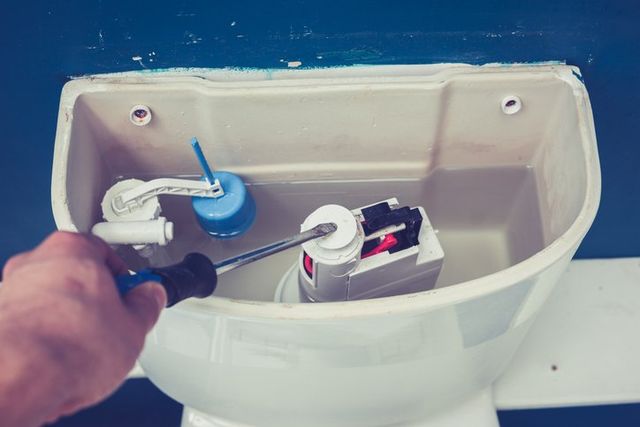Handling the Routine Hot Water Heater Crisis Events
Handling the Routine Hot Water Heater Crisis Events
Blog Article
What are your ideas about Common Hot Water Heater Problems?

A water heater is just one of the most vital basic home appliances that can be located in a residence. With water heaters, you don't need to undergo the stress of heating water manually whenever there is a demand to take a bath, do the laundry, or the dishes. However, there is always a possibility that your water heater would act up just like the majority of mechanical devices.
It is very important to note any type of little malfunction and also tackle it swiftly before things leave hand. A lot of times, your water heater begins to malfunction when there is an accumulation of sediments as a result of continual use. As a safety measure, periodic flushing of your hot water heater is suggested to avoid debris build-up and protect against functional failing.
Usual hot water heater emergencies and exactly how to deal with them
Leaking hot water heater container.
A dripping tank could be an indication of corrosion. It might create damage to the floor, wall and electric tools around it. You can even be at danger of having your home swamped. In this circumstance, you ought to shut off your hot water heater, permit it to cool off, as well as very carefully try to find the source of the problem. Sometimes, all you need to do is to tighten a couple of screws or pipe connections in cases of minor leakages. But if this doesn't work and the leak continues, you could require to use the services of a specialist for a suitable substitute.
Rising and fall water temperature level.
Your water heating system can begin generating water of different temperatures generally ice scalding or cool hot. There could be a need to replace either the thermostat or the heating system of your water heating system.
Inadequate hot water
Handling an inadequate supply of warm water can be frustrating. It may be that the water heater can't support the warm water demand for your apartment or condo. To manage this trouble, you might attempt to readjust your heater's temperature level dial as well as wait on a couple of minutes. If the issue continues, you can request the help of a professional plumber. You might upgrade your water heater to one with a bigger capability.
Blemished or stinky water
When this takes place, you require to know if the problem is from the tank or the water source. If there is no amusing smell when you run cool water, then you are specific that it is your water heating system that is faulty. The smelly water can be triggered by corrosion or the buildup of bacteria or debris in the water heater tank.
Conclusion
Some home owners disregard little caution and minor faults in their water heater device. This just causes further damages as well as a possible full failure of your appliance. You need to manage your hot water heater faults as soon as they come near avoid even more expenses as well as unnecessary emergency problems.
With water heaters, you don't need to go through the stress of home heating water manually every time there is a demand to take a bath, do the washing, or the meals. Your water heating system might start creating water of various temperature levels typically ice cool or scalding warm. It might be that the water heating unit can't support the hot water need for your home. If there is no amusing smell when you run cool water, then you are certain that it is your water heater that is faulty. The smelly water can be triggered by corrosion or the build-up of germs or sediments in the water heater storage tank.
Common Water Heater Issues and What You Should Do
What Type of Water Heater Do You Have?
Before we begin it’s first important that you identify the type of water heater you have on your property. There are two main types of water heaters out there: conventional and high efficiency.
Both of these types of products typically use either gas or electricity to heat power. There are also solar water heaters that use a thermal collector on the roof or yard to heat the water.
While these models are not as common, they can cut heating costs in half. In this article, we will focus on conventional and high efficiency.
How Do My Electric and Gas Water Heater Work?
Though they look similar, electric and gas water heaters work very differently. It’s important to know their basic function because often problems can be specific to the heating source.
In the electric model, a thermostat on the side of the machine detects the temperature of the water in the tank. When the temperature needs to rise electricity flows to a heating element suspended in the water.
Gas models also use a thermostat device — typically with a mercury sensor at the tip and an additional sensor called a thermocouple. The thermocouple detects whether the pilot light is on and controls the flow of gas.
When the thermostat drops below the appropriate level gas is released which becomes ignited by the pilot light. The flame heats the bottom of the water tank which causes hot water to rise and cold water to drop.
This natural circulation continues until the water reaches the desired temperature. Then, the thermostat triggers the gas control valve to shut off the flow of gas.
What Are the Most Common Issues and How Do You Fix Them?
https://happyhiller.com/blog/common-water-heater-issues-and-what-you-should-do/

I am very focused on Warning Signs You Need Water Heater Repairs and I am assuming you enjoyed reading the new article. For those who liked our page if you please don't forget to pass it around. Thanks for going through it.
Dial, we deliver! Report this page